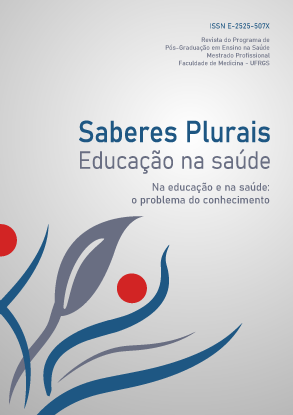BARRIERS TO ACCESSING THE UNIFIED HEALTH SYSTEM
CHALLENGES FACED BY TRANSVESTITES AND TRANS PEOPLE
DOI:
https://doi.org/10.54909/sp.v9i1.144857Keywords:
Transvestism, Transgender Persons, Barriers to Access of Health Service, Integrality in Health, Health EquityAbstract
Introduction: Brazil is the country that has killed the most transvestites and trans people in the last fifteen years. In addition, rights violations are committed when these people seek the most diverse public policies, including those in the health sector. Objective: To investigate, in Brazilian literature, barriers to access to public health services faced by transvestites and trans people in Brazil, as well as to understand the effects caused in their lives when they do not access the Unified Health System (SUS) services. Method: This research was carried out based on an integrative literature review with articles published from 2015 up to 2023. Data analysis was performed through content analysis. Results: Thirteen articles were analyzed. The categories identified in the analysis dealt with access barriers and the effects caused by these barriers. Both demonstrated the negative impacts caused by a series of factors (geographic, structural, technical, political and social) that affect the lives of trans people and transvestites. Conclusion: The lack of access affects the basic principles of the SUS, since transvestites and trans people experience difficulties in seeking and accessing their health rights. The review showed that access is generally marked by exclusion and social isolation; impacts on mental health; transphobia; negative view of the SUS; discontinuity of care and individual responsibility for health monitoring. In view of this, the praxis of health professionals needs to be guided by an ethical-political project.
Downloads
Downloads
Published
How to Cite
Issue
Section
License

This work is licensed under a Creative Commons Attribution-NonCommercial-ShareAlike 4.0 International License.
Autores que publicam nesta revista concordam com os seguintes termos:- Autores mantém os direitos autorais e concedem à revista o direito de primeira publicação, com o trabalho simultaneamente licenciado sob a Licença Creative Commons Attribution que permite o compartilhamento do trabalho com reconhecimento da autoria e publicação inicial nesta revista.
- Autores têm autorização para assumir contratos adicionais separadamente, para distribuição não-exclusiva da versão do trabalho publicada nesta revista (ex.: publicar em repositório institucional ou como capítulo de livro), com reconhecimento de autoria e publicação inicial nesta revista.
- Autores têm permissão e são estimulados a publicar e distribuir seu trabalho online (ex.: em repositórios institucionais ou na sua página pessoal) a qualquer ponto antes ou durante o processo editorial, já que isso pode gerar alterações produtivas, bem como aumentar o impacto e a citação do trabalho publicado (Veja O Efeito do Acesso Livre).










 Redes Sociais:
Redes Sociais: 


